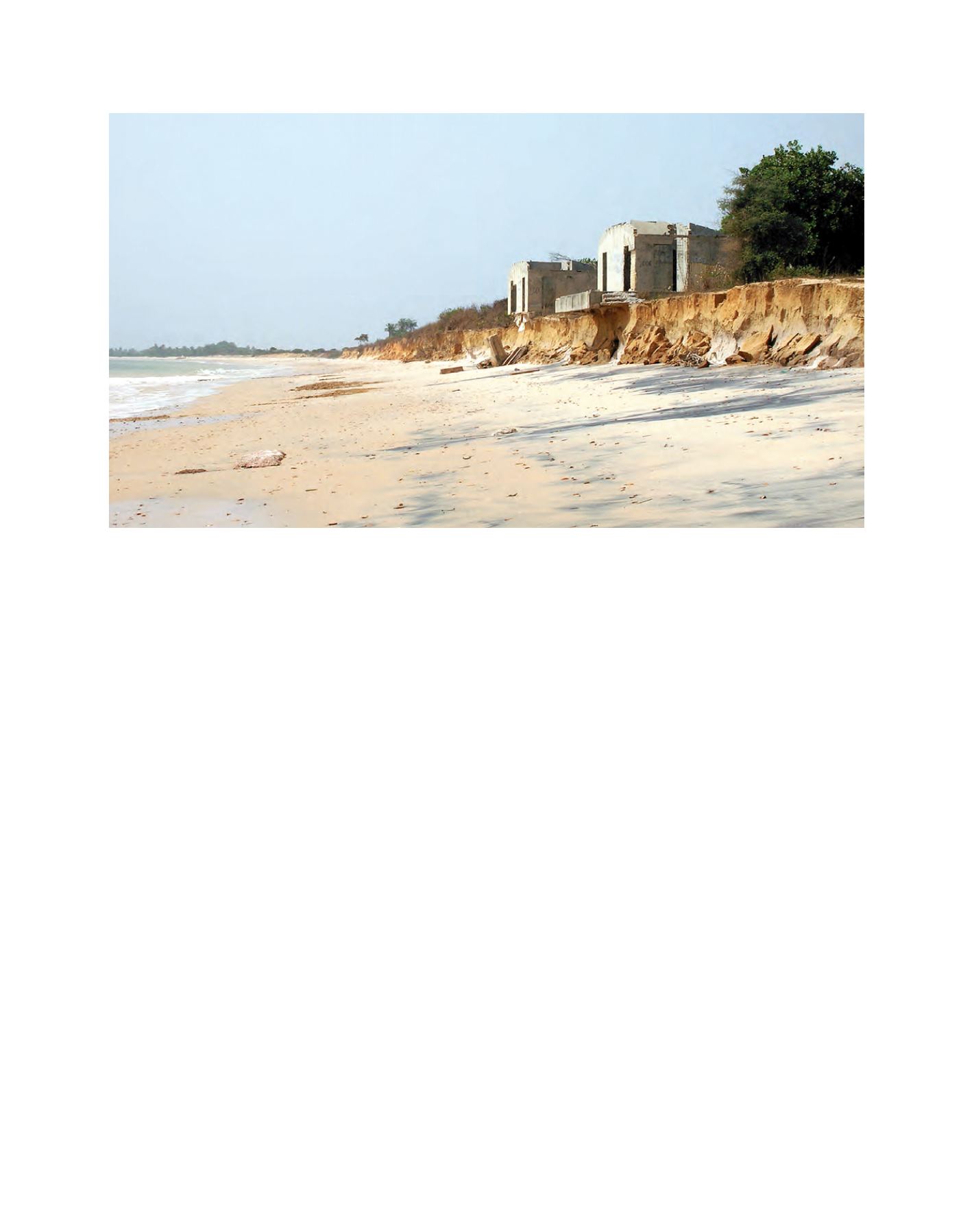

[
] 250
A
daptation
and
M
itigation
S
trategies
during the regional inception meeting, which took
place in November 2008.
The ACCC project is one of the various sub-regional
efforts to adapt to climate change in costal zones, includ-
ing: the West African Economic and Monetary Union,
with its project on coastal erosion; the International
Development Research Centre, with its programme
on Adaptation to Climate Change in Africa; and Le
Programme régional de Conservation de la zone Côtière
et Marine en Afrique de l’Ouest, which is a consor-
tium of NGOs focused on protecting the marine and
coastal areas of West Africa. The point of this ACCC
project is to promote multiple adaptation responses to
combat coastal erosion, since no single option can fit all
circumstances. The inclusion of stakeholders through
sensitization campaigns and activity-integration is an
important aspect of this project. By involving stake-
holders the project benefits from a wide variety of
experiences, as well as becoming a larger network.
The actions taken during this project are also
expected to promote the development of biodiversity,
since improving the marine environment improves the
well-being of the wildlife that depends on it – includ-
ing turtles and marine birds. Combating coastal erosion
by developing adaptation systems clearly works, while
preserving biodiversity and involving all stakehold-
ers are efficient ways to prepare communities and
ecosystems for better adaptation to climate change and
its consequences along West Africa’s coastal zones.
Integrated coastal management will also contribute to
the resilience of coastal ecosystems and populations to
a future environment affected by climate change.
ing biodiversity and strengthening the adaptive capacities of local
communities and ecosystems. The project will also try to include
climate change considerations in different development plans – for
example, tourism strategy and master plans for coastal towns.
One of these pilot projects will take place in Varela, Guinea Bissau,
where extremely rapid coastal erosion is occurring. Activities on the
site include cleaning the beach (mostly material left by a former tourist
industry infrastructure), mangrove restoration and afforestation. These
activities will be conducted with local non-governmental organizations
(NGOs) and represent an opportunity to conduct awareness training
with different levels of society, including women and the young. At a
national level, agreements have been made with the Ministry of
Tourism to include climate change aspects, as well as integrated
coastal management, in its strategy development.
Regional components will aim to develop training on a variety
of related matters. Three regional training workshops have already
been organized on climate change and coastal zones, techniques
for mangrove restoration and littoral dune afforestation. A shared
environment consisting of a website, network and database is
being created. This will enable exchange of experiences, support
sub-regional activities to increase the opportunities for decision
makers to act, and increase the design and implementation of inte-
grated coastal zone management policies.
In the coming months there will be a forum of sub-regional
parliamentarians to discuss how they can contribute to better
management of the coastal zones in a context of climate change.
A ‘training of trainers’ will be organized to launch the Sandwatch
programme, which is supported by UNESCO in the Caribbean
and Pacific islands regions, and seeks to teach scholars how to
monitor beaches effectively. Appropriate communication tools
will be developed to enhance the visibility of the project and find
co-funding. A monitoring and evaluation framework was defined
Image: Joao Raimundo Lopes
Coastal erosion along the beach of Varela (Guinea Bissau)
















